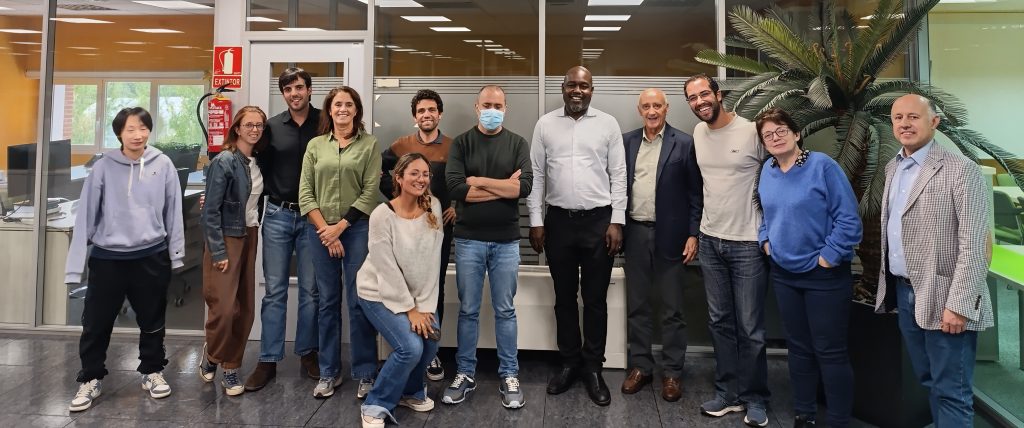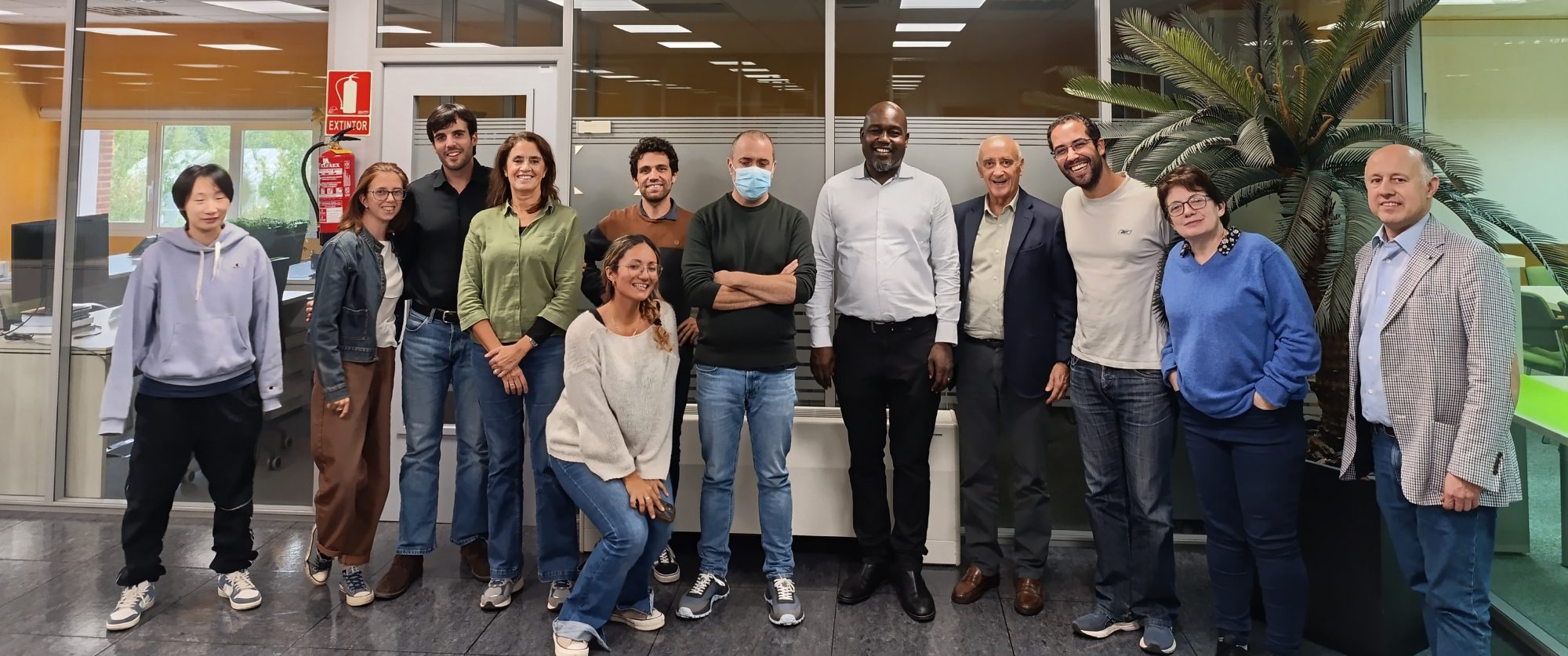
The director of the Food Reserve for West Africa, Dr. Malick Lompo, visited CEIGRAM on October 24, where he joined Fernando Escribano, the Coordinator of the Feed & Aflatoxins section of the PRISMA Project, to discuss the challenges and progress in food security in West Africa. The Food Reserve, managed by the Regional Agency for Food and Agriculture (RAAF) under the Economic Community of West African States (ECOWAS), focuses on the development of a regional food network capable of responding to food crises in countries such as Nigeria, Niger, Mali and Burkina Faso, as well as the rest of West Africa.
Since its launch in 2013, the Food Reserve has been instrumental in mitigating the impact of crises in the region, supporting at-risk populations with stocks of staple foods and nutritional products. Currently, in addition to having a network of silos and warehouses for grains and commodities distributed in more than 15 strategic points, the initiative is expanding into livestock feed reserves, an area where PRISMA is playing a crucial role. Through its research on index insurance and aflatoxin control, PRISMA seeks to strengthen the safety and resilience of the entire food supply chain by adapting it to local conditions in the region.
Dr. Lompo stressed that PRISMA’s work is aligned with the vision of the West African Food Reserve, which not only aims to provide rapid response in emergency situations, but also pursues an efficient food system adapted to the climatic and socioeconomic realities of the region.
The quality standard required from the producers who contribute to filling the Reserve’s stocks is higher than that required by the market, and so is the price paid to farmers, so that local producers can supply the Food Reserves with grains of excellent quality. Thanks to strategies such as this, they have managed to ensure that most of the grain in storage (>90%) is produced locally. This ensures that quality food is supplied through local production.
A fundamental part of this collaboration is the participation of the Spanish Agency for International Development Cooperation (AECID). Since 2015 they have been present in the negotiations about the West African Food Reserve, and among the actions carried out, it has supported the involvement of family farming in the supply of food reserves. Through AECID, small farmers’ associations have been encouraged, improving their production conditions and opening a new way for local farmers to sell high quality grain at competitive prices.

There is still work to be done and there is great interest in addressing issues that focus on gender. Both AECID and the Food Reserve itself are very interested in incorporating the gender approach in their vision of Local and Regional Development. Progress in this field is an exciting path for the West African communities as a whole, which we hope will continue to work along these lines and enhance collaboration and participation.
Dr. Lompo’s visit also highlighted the challenges ahead and the need to expand collaboration with local and international investors and actors who can provide solutions and technologies to improve the sustainability of agri-food systems in the Sahel. The creation of a data platform to monitor and analyze the impact of interventions in each country is one of the areas where collaboration between PRISMA and the West African Food Reserve can make a substantial difference in preventing food crises by integrating critical information on the food system, climate factors and adaptation practices.
In a context of increasing climate vulnerability and global changes, this partnership seeks to strengthen cooperation and development support links, ensuring that, in the face of a food crisis, responses are increasingly effective and adapted to local needs, while also promoting innovative climate change mitigation and adaptation solutions.

